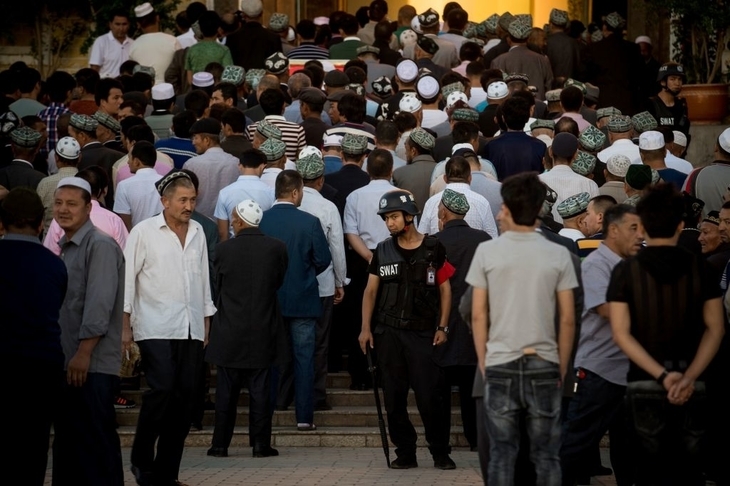After repeated denials, Chinese officials finally admitted last month that they have set up internment camps in the far-western province of Xinjiang, where up to one million ethnic Uighurs, almost all of whom are Muslim, are being held. Under China’s anti-terrorism law and ‘religious affairs regulation,’ the government in the Xinjiang Autonomous Region publicly introduced the ‘Regulation on De-extremification.’ What it describes is a new gulag, where re-education and the suppression of Uighur identity is its main goal.
There are approximately 25 million Muslims in China today, but these new draconian laws in Xinjiang are aimed solely at the ethnic Uighurs, of which there are just over 11 million. Unlike the Hui, another major Muslim ethnic group who have largely assimilated into Chinese society, Uighurs have resisted intermarriage, speak their own Turkic language, and advocated for some level of autonomy, making them a target for suppression. Over the decades, Beijing’s heavy-handed approach has helped outside Islamist elements make inroads among Uighur youth, and spurred the formation of radical groups. As

Britain’s best politics newsletters
You get two free articles each week when you sign up to The Spectator’s emails.
Already a subscriber? Log in






Comments
Join the debate for just £1 a month
Be part of the conversation with other Spectator readers by getting your first three months for £3.
UNLOCK ACCESS Just £1 a monthAlready a subscriber? Log in